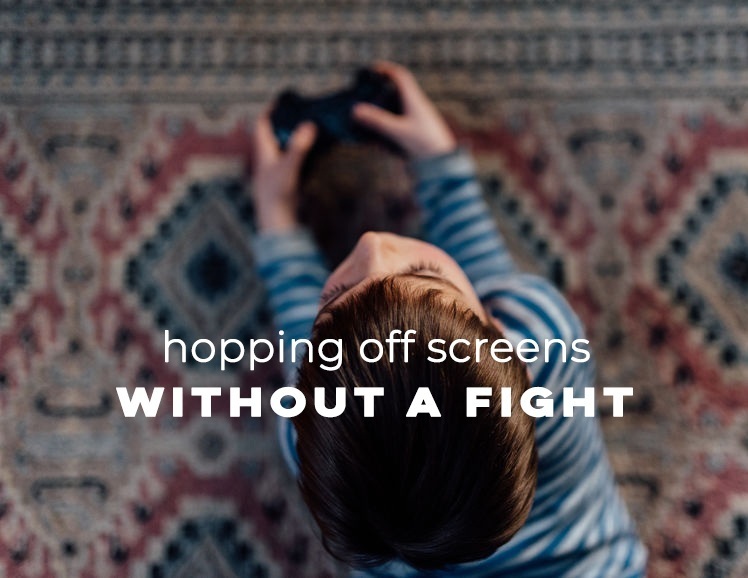


Getting your kid to put down his or her device can be challenging. Check out these helpful thoughts from neurotherapist Susan Dunaway on how to help your kid hop off the screentime merry-go-round.
As a neurotherapist, my office is flooded with patients who come to me for help resetting their child’s brain, oftentimes because of a video game addiction. Over and over, I hear the same plea for help: “Our kids are great kids, but it seems all their worst behaviors come out when we tell them it’s time to get off their screens. What do we do?”
It’s a great question. Why do kids react so intensely when asked to stop screens? Why is it easier for them to put down a book or pause their Lego building? The answer lies in their brains.
Remember riding a merry-go-round as a child? Round and round you’d go, faster and faster and when you hopped off the world still spun even though you now stood on solid ground. It was impossible to walk a straight line for a while, no matter how hard you tried.
When our kids are asked to “hop off” screens they can feel like we did after that spin on the merry-go-round. Brains are made to adapt to their environment. The world of screens and the real world run at distinctly different paces. Our children’s brains speed up to match the screen and become out of sync with the speed of the world.
This mismatch shows itself, sometimes in loud and ugly ways, when you ask them to stop. The goal is to have them get off before their brains have reached a point of no return (read: raging tantrum) and then help them sync back up with the world around them. Coach them to do a few simple exercises after they turn off their device.
Jumping jacks, stretches, yoga moves or running around the house a few times can help their brains and bodies reconnect.
If they have reached the point of no return, observe how long they were on and what they were doing with their screen time. Games, including educational games (dubbed “edutainment”) affect the brain faster than watching shows. Younger brains react faster than more mature ones and brains already dealing with challenges like ADHD, anxiety or autism also tend to react faster. Kids who are tired or stressed reach their breaking point sooner as well.
Once you’ve made your observations discuss with empathy what you notice and listen to their thoughts. Ask for what they have noticed and what they think might help. Often times, it comes back to time or content. Your solution may sound something like, “I’ve noticed that when you game for 45 minutes you tend to get really angry when we ask you to get off. Next time we’ll give you 30 and see if that’s a better match for your brain. Plus when you stop your game we want you to spend a couple minutes playing fetch with the dog or shooting hoops. If the anger keeps happening we’ll reduce your time until we find the right match for your brain. We’ll know it’s a match when you can just say ‘ok’ and not feel angry.”
Of course your kiddo might not like the new time restrictions but emphasize that your goal is to find the point that their brain isn’t reactive to what the screen is doing to them. By staying consistent and positive you can help your child stay in control when the merry-go-round stops and he has to “hop off” and walk a straight line in the real world!
Susan Dunaway is a START parent and Co-Founder of Amend Neurocounseling, a brain-based clinic that uses neurofeedback, talk therapy, and family work to achieve long-term positive changes. Susan also co-founded The Face to Face Movement which provides presentations about technology to the community.